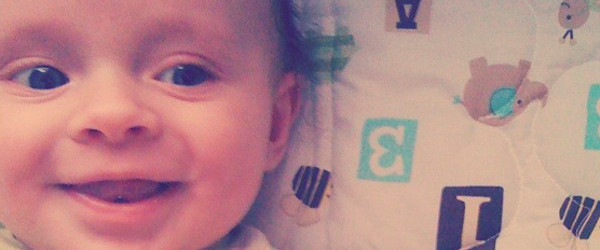The past few nights, as we’ve been working our way through George MacDonald’s The Princess and the Goblin, my six-year old son has turned to me after reading and prayers, and said in a soft voice, “Daddy can you stay for a few minutes? I just want you to cuddle me tonight.”
I pause at his request, rather out of character, but I suspect it has something to do with the stout, sharp-toothed goblins and their peculiar absence of toes. (No toes? How horrible!) I smile and squeeze his shoulder, but an unbidden squiggle of a thought winds its way into my head.
A man cuddling his son. Not a bear hug. Not wrestling. A cuddle. This is a thing, right?
A stupid question, I know. But when our culture depicts fathers and sons – if it does at all – they’re laughing together at stupid YouTube videos, watching a game, engaging in belching contests. Storybooks and cuddles fall into a strange gray area.
I shake off the doubt and click off the lamp. Beside me, my son nestles down, his breathing slow and deep. Soon he is fast asleep, the visions of goblin miners and shadowy underground caverns a distant memory. But my insecurity remains.
My years as a young father have forced me to confront this painful truth – I, like perhaps many other men, struggle to speak the language of tenderness. I too often lapse into passivity, mimicking the habits of my father, and perhaps his father before him. I am hesitant and awkward at breaking that invisible wall and drawing my children close for a tender, wordless moment. I give in to the darker voices that ask if, in some way, too much tenderness shown at a young age might undermine a boy’s ability to be “a man” when he is grown.
But if we are to understand God as Abba, tenderness is not just a good idea, it’s a necessity.
“Our identity rests in God’s relentless tenderness for us revealed in Jesus Christ,” writes Brennan Manning in his book Abba’s Child.
Through the person of Jesus, God literally came close to us. He embodied the physical, embraced the fragile, and was, ultimately, broken by it. He underscored this nearness with promises like “Come to me, all those who are weary and burdened, and I will give you rest,” echoing the words of Isaiah:
He will feed His flock like a shepherd; He will gather the lambs with His arm, and carry them in His bosom.”
And, of course, there are David’s prayers in the Psalms, some of the most achingly lovely lines in Scripture: “Lord, don’t hold back your tender mercies from me. Let your unfailing love and faithfulness always protect me.”
We serve a God, it would seem, who encourages cuddling. Jesus was a hugger. The Gospels showcase enough of Christ’s tenderness to allow us to form a picture of this carpenter from Nazareth pulling children close, and weeping on his disciples.
Another picture comes to us in the form of Aslan (not a tame lion) sharing a tender moment with Susan and Lucy after his resurrection, at the ruins of the Stone Table:
Aslan stooped his golden head and licked her forehead. The warmth of his breath and a rich sort of smell that seemed to hang about his hair came all over her.”
Why do I love these lines so much? Why do I want a lion to lick me?
In many ways, my children are re-teaching me this language, through a process Jean Vanier calls “equilibrium of the heart.” As adults, we may feel one thing and act another. Children, in their beautiful unity, are unable to do such a foolish thing. They are perfectly balanced.
“Maybe our father is a very strong man and a businessman,” Vanier says, “and when he comes home, if he gets down on his hands and knees and plays with the children, it’s the child that is teaching the father something about tenderness, about love, about the father looking at the needs of the child, the face of the child, the hands of the child, relating to the child.”
Tenderness is scary; it demands vulnerability and casting aside whatever pretense or mask I would wield. But with children, as with God, to be vulnerable is to open one’s self to the incredible possibility of being loved unconditionally, because we come with nothing.
And tenderness leads to an understanding of beauty, a sensitivity to the voice of the Spirit speaking in its myriad small voices, be they a stained glass window or the blazing blush of an autumn tree.
I’m a man, and I love my sons’ cuddles. I love the feel of their fingers running against the stubble on my cheek in the morning, and the pressure of their head on my chest at the close of a whirlwind day, crown of head against beating heart. To them, I am Daddy, but I will remind them every chance I get – as much for me as for them – that every bit of tenderness I possess comes from my Abba.
- The Winter King: A Review - January 10, 2024
- Taking it Slow - November 13, 2023
- Calling Out Your Name: Rich Mullins, the Rocky Mountains, and Tumbleweed - October 17, 2022

Glenn, this is gorgeous. Thank you!
This is so touching. Thank you!
So good.
“Tenderness is not just a good idea; it’s a necessity.” Amen. My 11-year-old son crawled into my lap this morning simply because he wanted to snuggle. Tenderness works both ways–his tenderness in crawling in my lap, my tenderness in holding him–and it is a gift to both the giver and the receiver. God’s gifts usually are.
Beautiful article. My husband cuddles our son any chance he gets.